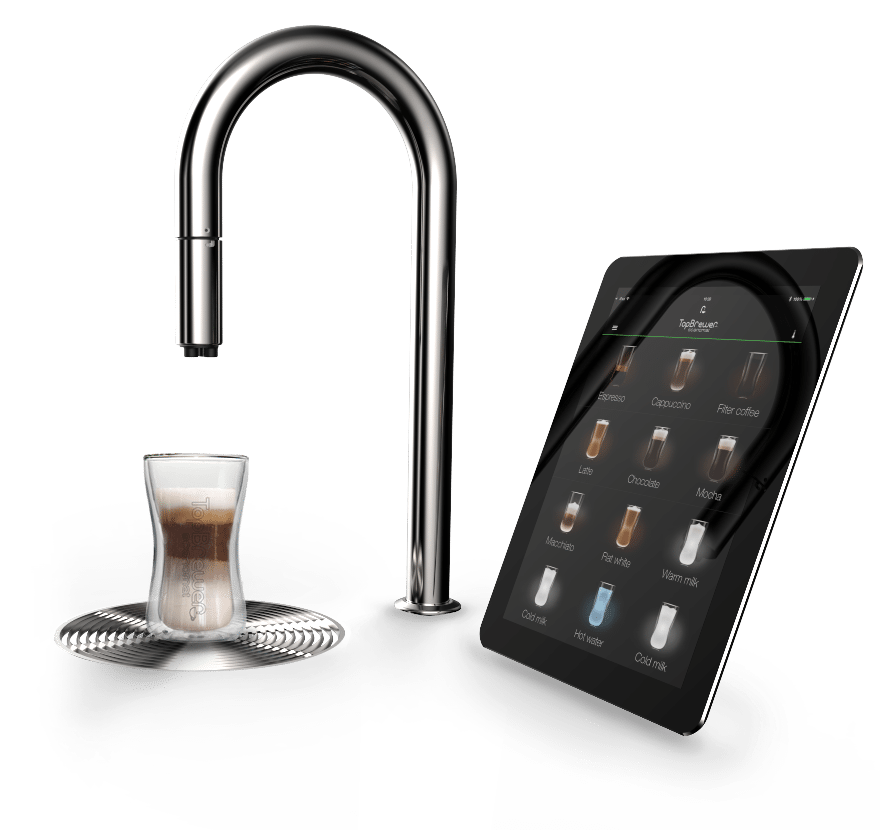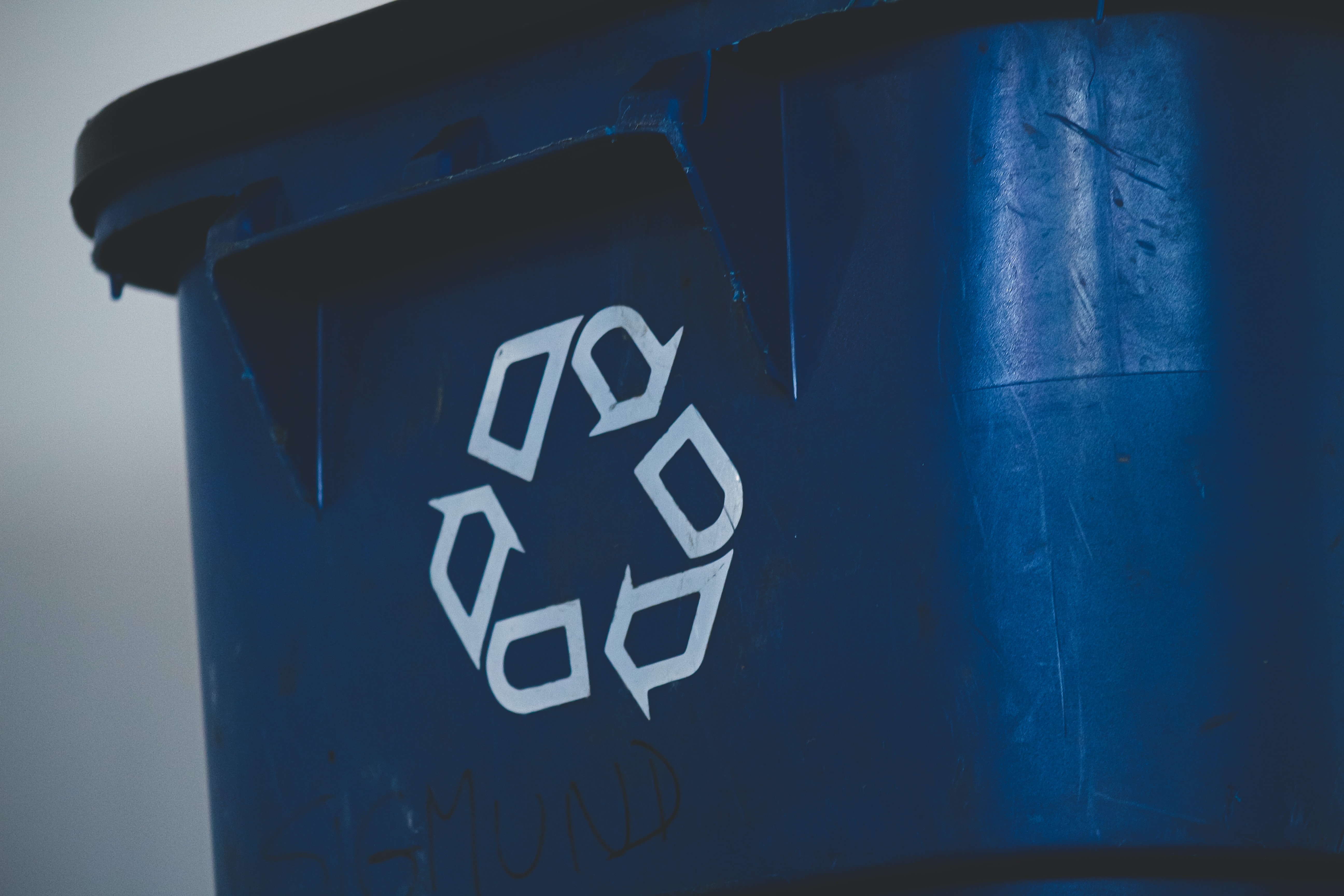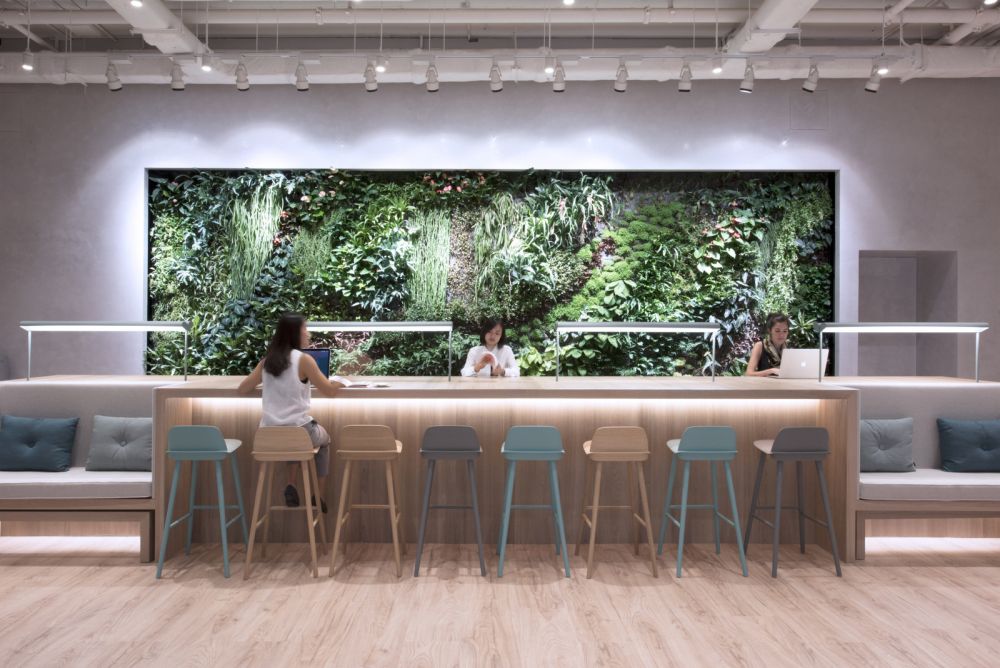The Future of Work – What’s next for sustainability in the workplace?
We’ve spoken in the past about how, in the context of the pandemic, it’s increasingly important to ensure that your workspace is clean. But what about making sure it’s green?
With coworking spaces around the world focusing on facilitating their members’ return to the office, many will also be re-evaluating their current practices when it comes to sustainability.
And for good reason. In the UK, the built environment contributes to around 40% of total carbon footprint. But exactly how can flexible workspace operators play their part in tackling climate change?
Well, there are many ways to go about it.
Some are quick and easy to implement, such as opting for sustainable food and drink options. Others will require tweaks and changes to the fabric of your building.
Let’s begin with a relatively easy one.
1. Promote recycling among members
Let’s face it: some people are more proactive than others when it comes to recycling. Some make the effort to throw things in the right bin, whereas others are too preoccupied to separate food, recyclable waste and non-recyclables.
Instead of having a waste bin by every desk, follow in Areaworks’ footsteps and create a centralised recycling area. Install large, colourful, clearly labelled recycling bins so that members are clear about what goes where.
It’s also important to dispose of unwanted electronics properly.
Equipment that gets thrown into landfills contains chemicals and toxins that leak into the environment and cause damage. Some local authorities collect small electricals as part of their regular waste pickup.
Failing that, you should be able to recycle electrical items at your local recycling hub.
2. Leverage local resources
In recent years, there’s been a renewed interest in all things local: local businesses, local communities, and local coworking spaces. Keeping things local benefits the environment in many different ways. Think about it – by minimising your commute you’re reducing your carbon footprint, for starters.
This year, consider replacing Amazon with local suppliers. From your weekly coffee haul to basics like stationery, there are so many local resources out there waiting to be leveraged.
3. Consider sustainable coffee options
Speaking of coffee, why not opt for a coffee brand that’s both sustainable and ethical?
Around 125 million people around the world depend on coffee for their livelihoods and although it’s one of the most traded and valuable agricultural products, many farmers aren’t able to earn a reliable wage from their coffee produce. This is due to the volatility of the coffee market and less developed social infrastructure.
The production of coffee on monoculture farms can also wreak havoc with the earth’s biodiversity. Research shows that the global average water footprint of a 125ml cup of coffee is 140 litres, for example.
If you want to go down the eco-coffee route, be sure to check out this article by eco-age.com. As well as top tips, it provides useful information on Rainforest Alliance and UTZ, Fairtrade, Soil Association Organic and Bird Friendly certifications.
Oh, and don’t forget to dispose of coffee in an eco-friendly way by composting or recycling it.
Speaking of coffee, Nexudus users can now benefit from our new integration with TopBrewer, a connected coffee solution designed to look like a tap. Our integration with TopBrewer means members don't need to worry about paying for their coffee with a card or cash, as the charges are billed directly to their Nexudus account.
But what’s that got to do with sustainability?
A lot, as it happens! TopBrewer prioritises sustainable growth and trade.
Their coffee is sourced from farms that they have a direct trading relationship with and an assurance that the coffee is grown as sustainably as possible for the local environment.

4. Promote cycling to the coworking space
Pollution is quite literally destroying lives. In the UK, outdoor air pollution is linked to approximately 40,000 deaths every year.
Replacing four wheels with two is one of the best things you can do to help reduce harmful emissions and make your community a healthier place to be. And aside from benefiting the environment, cycling is an incredibly effective de-stresser.
If you want to encourage members to cycle in, take a leaf out of TOG’s book.
The operator’s Henry Wood House location has ample cycle storage, great shower facilities, drying rooms, and lockers. Urban cycling shop Velorution also happens to be situated next door and sells everything a city cyclist could need.

Driving a car emits about 271g of CO2 per passenger-kilometer. Cycling is a carbon-free activity!
5. Aim for efficient infrastructure
Heating, ventilation and air conditioning (HVAC) systems are among the largest emitters of carbon dioxide. Fortunately, there are lots of ways to make your HVAC system more sustainable. One way is to invest in predictive “smart” maintenance tools that flag issues as they arise.
Data-tracking tools that integrate with HVAC systems can also help flexible workspaces to become more carbon-efficient. Insights from the data collected can be used to identify energy usage patterns and pinpoint areas for improvement.
If you’re in the process of designing a flexible workspace or are up for investing in sustainable flexible workspace infrastructure, check out the following:
Geothermal energy
Solar power
Hydronic heating
Ice-powered air conditioning
Wind power
DeVAP
Smart thermostats
Digital ceilings
6. Embrace the ‘circular’ approach
Flexible workspaces around the world are embracing the circular economy. According to the Ellen MacArthur Foundation, “a circular economy is a systemic approach to economic development designed to benefit businesses, society, and the environment.”
You can leverage the benefits of the circular economy by reducing the waste your coworking facility produces, as well as its level of consumption. Simple steps such as recycling, buying furniture made from recycled materials, and banning single-use plastics all make a difference.

By recycling your waste, you’re enabling industry to produce new products from a more sustainable source.
7. Green-ify with office plants
Indoor plants have the power to significantly reduce air pollution in your coworking office and improve the wellbeing and productivity levels of your members. In fact, one study shows that bringing plant life into the workplace can boost employee satisfaction and can increase productivity by up to 15 per cent.
Liven up your coworking space this year with a curated selection of office plants. Or, go one step further like these green offices and install a living wall.

The Work Project in Hong Kong. Photo by Bean Buro.
8. Switch to renewable energy
With rooftop solar installations and wind farms on the rise, it’s never been easier for organisations – including flexible workspace operators – to switch to green power sources.
Many electricity suppliers offer competitively priced green plans that use power from renewable sources, such as wind and solar, as opposed to coal or natural gas.
9. Join an ecofriendly certification programme
One great way to pledge your allegiance to the sustainability cause is to sign up for a programme like BREEAM. But what is BREEAM, exactly?
(Spoiler: it’s got nothing to do with fish.)
BREEAM is the world’s leading assessment method for the built environment. It uses third party assessment to gain an insight into a building’s environmental, social and economic sustainability performance. Assessments can be carried out at the design and construction phase all the way through to operation and refurbishment.
“BREEAM rated developments are more sustainable environments that enhance the well-being of the people who live and work in them, help protect natural resources and make for more attractive property investments,” says BREEAM.
10. Turn it off
...At the end of the day (literally) one of the best things you can do is to switch everything off.
Encourage dedicated desk and private office members to switch off their devices and turn off the lights upon leaving the building. If you haven’t already, you can also improve your space’s energy efficiency by implementing motion-activated light sensors.
We’re proud to be part of a sector that is prioritising sustainability right now.
From coworking spaces like Karma Kitchen, which has onsite composting and cycling amenities, to flexible workspaces like Knotel Hatfields which is powered by 100% renewable energy sources, operators are pulling out all the stops to reduce their carbon footprint.
And it’s well worth the effort. After all, as Sir David Attenborough says, “the future of humanity and indeed, all life on earth, now depends on us."
Related stories
Flexible Workspaces Management: Simplifying Corporate Success
Working from home is indeed not a new concept, at all! AT&T started to eliminate unused offices in 1991. Three years later, as part of an experiment to explore the extent to which a large organisation could revolutionise the workplace by bringing work to the employees, it had 32,000 employees working from home.
State of Remote Work 2021: What does it mean for coworking and flex workspaces?
Owl Labs recently published their 2021 State of Remote Work Report. In this article, we take a look at some of the key findings and consider what they mean for coworking and flexible workspaces.
Future of Work – What's next for the human experience in coworking and flexible workspaces?
For our final Future of Work article, we take a look at the Human Experience and how this is driving all other trends we have covered in this series. Treating members as individuals is what coworking does best, but there is never a bad time to reassert your care and devotion to your members.
The Future of Work – What’s next for the daily commute?
Is the daily commute worth it? Although people certainly miss the collaboration offered by office working, the commute is something that hasn’t been missed as much. So what does this mean moving forward, and how will the daily commute change as we move into a post-covid world?
The Future of Work – What's next for purpose-driven values in coworking and flexible workspaces
Very few people get into the coworking business just to make money quickly. It takes time to develop a coworking space into a profitable business, which is why many operators focus instead on being purpose-driven organisations. This week’s Future of Work article focuses on how to instill purpose-driven values into your space.
The Future of Work – What’s next for upskilling in coworking and flexible workspaces?
Increasingly, businesses in every sector are discovering the importance of upskilling, a great way to boost the skillset of your team. Coworking is not exempt from this as they are in the position to boost the skills of not only their staff but their members too!
The Future of Work – What’s next for diversity and inclusion in coworking and flexible workspaces?
With increasing scrutiny placed on businesses to employ proper measures to ensure a diverse and inclusive workforce, it's vital to have a proper understanding of the terms diversity and inclusion and what they mean. This week's Future of Work article focuses on this vitally important issue, and what coworking spaces can do to make sure they are doing their part for this essential movement.
The Future of Work – What's next for digital communication?
The way we all communicate has changed drastically over the past year, and as much as we all want to get back to normal, it seems likely that this kind of digital communication will be with us for some time yet. This week, we focus on how digital communication will impact the future of work for years to come.
The Future of Work – What’s next for hygiene in workspaces?
It will come as no surprise that an increased focus on office hygiene will play a massive role in the Future of Work. Here we take a look at the broader hygiene trends as well as the measures being taken to combat the spread of coronavirus.
The Future of Work – What's next for employee health and wellbeing?
The second focus article in our future of work series takes a deeper look at the trends in employee health and wellbeing. This is an area that has seen growing attention over the past few years, and this very much looks set to continue into the future.

